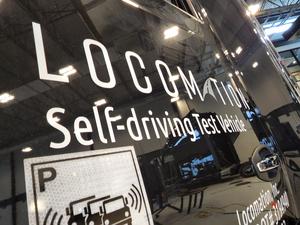
Since its launch in March, the Urban Redevelopment Authority of Pittsburgh's new URA Ventures pilot program received 95 applications from companies looking to participate in the investment opportunity, far more than the $3 million fund is able to support.
Of those, about 84% of applications came from companies that are minority and or women-owned business enterprises (M/WBE), a figure that surprised Devin Abraham, the assistant director of business solutions at the URA and one of URA Ventures' fund managers.
"It's incredible; it's a good thing and a bad thing," Abraham said. "It's a good thing because with limited resources, people are hearing about us. It's a bad thing because why is there such a high demand for us? We want to help them and we ran through all 95 companies, we've done high-level due diligence and this takes time."
As an early-stage, diversity-focused fund, URA Ventures is looking to invest in the region's M/WBEs as part of a larger goal aimed at increasing investment in the city with the hope that these funding opportunities will lead to job creation and local company growth, especially among the city's M/WBEs. In defense of the fund's existence, Abraham cited a recent LendingTree study that found Pittsburgh as being among the lowest-ranked cities nationwide in terms of businesses that are owned by Black individuals. It's that, coupled with the region's lower-than-average seed-stage funding opportunities, that has Abraham optimistic that a program like URA Ventures will prove itself successful over time.
But it's not just looking to cut checks to local tech startups; the fund's thesis rests on the idea that returns earned from exits on these investments will then be used to invest in other small businesses that lack the rapid growth potential to attract or even warrant venture capital investment.
"We wanted to create an investment vehicle that allowed us to invest in tech companies but also support local 'Main Street' companies, which are the true economic backbone of a city," Abraham said. "We can invest in a tech company and they could scale — Series A, Series B, exit — but then they're gone and what kind of economic play does that have?"
With URA Ventures, Abraham envisions the program as being able to hedge its bets so that tech company earnings made from exits out of URA-supported deals can be used to fund businesses that aren't tech companies.
To do so, URA Ventures is splicing up its $3 million fund into three groupings.
Main Street Ventures will invest up to $50,000 across more than 20 M/WBE small businesses such as coffee shops, pizzerias and others as part of its $1.3 million allocation. Pittsburgh Entrepreneur Fund (PEF) 2.0 will invest up to $125,000 per M/WBE and venture-backed tech startup as part of its $1 million allocation. Finally, URA Ventures will invest up to $250,000 per fund from local VC firms that are investing in local startup companies as part of a $750,000 allocation.
URA Ventures is now readying to finalize deals with the first seven of these companies, all of which are at least 50% or more owned by women and/or a person from a minority population group, as part of its first wave of investment. The total dollar amount for this group is likely to be $590,000, with three companies likely to get investment from the Main Street Fund and four companies likely to receive investment from the PEF 2.0 fund, assuming all goes according to plan following a 30-day due diligence period that began Thursday.
When it comes to vetting companies for potential investment, there are financial requirements that involve digging through spreadsheets to ensure a business's future is stable, but there's also an investigation into how an applying business is benefitting its local community.
"That storytelling piece is important. Sometimes we'll ask in our intro calls (with interested businesses) 'what are you doing for Pittsburgh' and that's a whole other side story but big picture, just that storytelling piece and people's character," Alissa Monette, an administration assistant of business solutions at the URA who is working with Abraham on URA Ventures, said. "Character over credit is a catchphrase we've kind of been saying … we've been looking at people's willingness to learn and how passionate they are about either their product or their service."
Funding for those nontech companies will be offered via revenue-based financing through which the program will take a fixed percentage of a company's revenue starting six months after investment and up until the original investment is paid back in full. That means that if one month's revenues for a given company are down, then so too will the business' expected monthly payment as opposed to a more traditional loan in which the monthly payment amount is fixed throughout the loan's duration.
"With revenue-based financing, we grow when the company grows and when they take a loss, we take that loss as well," Abraham said. The program will hedge those losses against the investments it's making into the tech companies, which Abraham said he expects returns to be between three-to-five times the original equity-based investment.
Abraham said it's a model that's not only unique to Pittsburgh but potentially the country overall.
"I've done my research, and there is social impact. But there's no social impact backed by venture backed by government, and I believe there should be a tri-fold model there where we have government funding as well as venture funding," Abraham said. "A lot of people are doing social impact, a lot of people are doing venture capital, but we kind of merged that to replicate this whole social-impact-venture-backed model."









